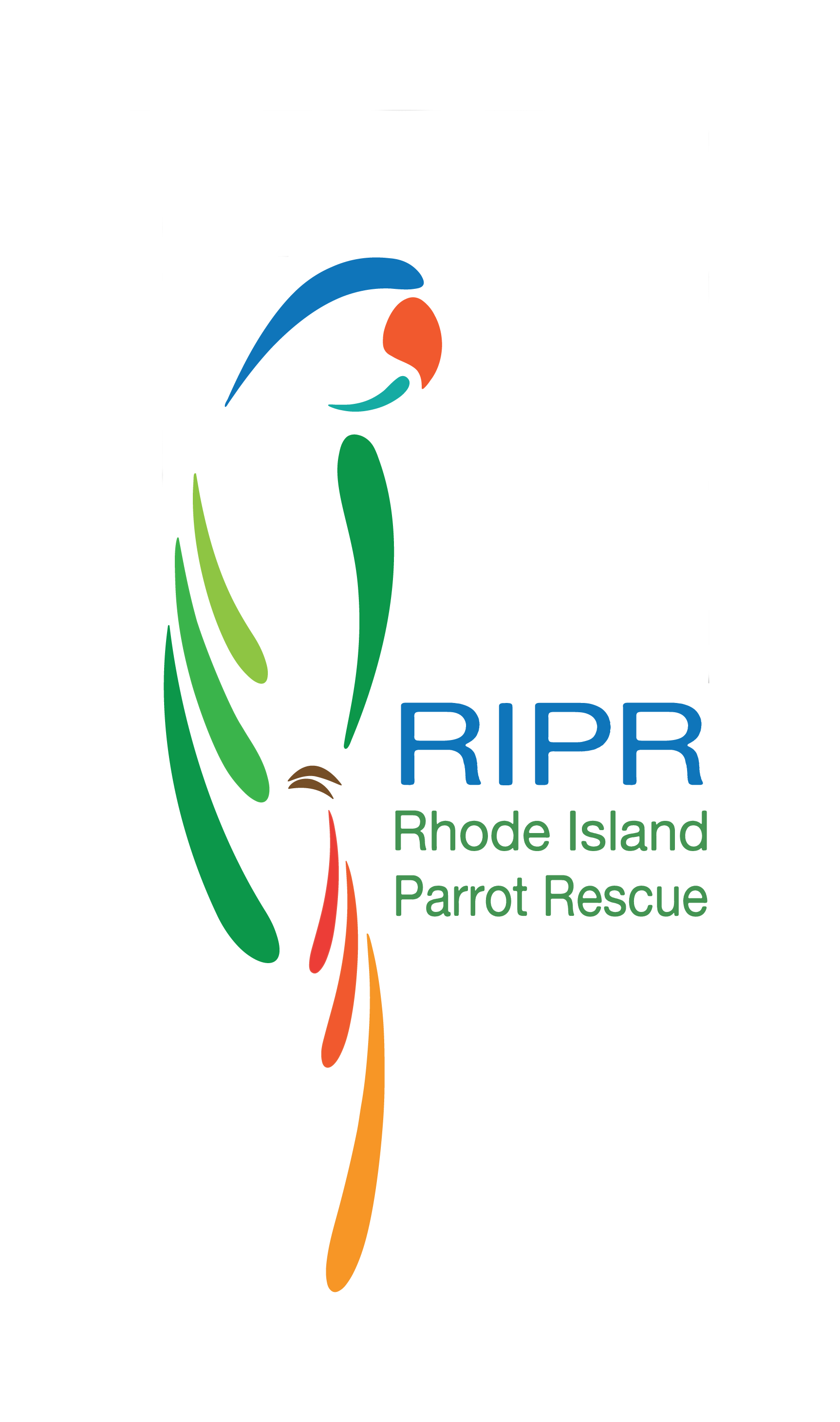Feather Destruction: What is it, and how can I stop it?
Parrots are complicated and extremely intelligent creatures, and with this comes many challenges for their caretakers. One common issue we see often in captive birds is feather destruction. Parrots destroy their feathers in one of two ways: barbering or plucking. These behaviors can be harmful to your bird, and often are a cause for concern for their caretakers.
So what are these behaviors, and how can you stop them if you notice your parrot destroying their own feathers?
Feather plucking
Feather plucking is a maladaptive behavior captive that involves the bird plucking or pulling their own feathers out with their beaks, often causing damage to the feather follicles or the skin. Typical regions affected by plucking are ones the bird can reach, like the chest, belly, neck or wings.
A perfect example of plucking behavior on the belly.
This repetitive behavior is seen in captive parrots and does not occur in the wild. Therefore, research has concluded that this self-destructive behavior is a direct result of the living situation and care of affected captive parrots.
To alleviate this behavior in birds, it is essential to tackle the root of the feather plucking problem, rather than just treating the symptoms. By doing this, you will solve the problem in the long term rather than just the short term.
Common causes of plucking can include:
Improper or restricted cage size.
Poor diet and exercise.
Environmental factors, such as smoke, arguments or yelling, chemicals in the environment, allergies, stress, anxiety and loneliness.
Medical factors such as parasites or other illnesses.
Feather barbering
Feather barbering is a form of feather destructive behavior where instead of plucking the entire feather out of the body, the parrot chews the ends of the feather. This can be as mild as slight over preening where the edge of the feather looks jagged, or this can be very dramatic and extreme like in the photo below.
Feather barbering is another common self-mutilation behavior in captive parrots.
How to prevent feather destruction
As soon as you notice feather destructive behavior in your parrot, it’s important to take quick action before damage escalates.
1. Rule out medical issues
Bring your parrot to your avian veterinarian to ensure there are no medical or health problems that might be causing the issue. Maintain open and honest communication with your avian vet throughout your journey.
2. Make changes to the environment for your bird if needed
Is your parrot in a large enough enclosure? Do they have enough toys and activities to keep their brains engaged? Is the air around them clean? You should consider the environmental aspects of your home and where they live and make changes as necessary to ensure they have a large, stress-free, clean and healthy environment with enrichment activities and a steady sleep schedule.
3. Assess and adjust the diet your bird is eating
Parrots need a very specific, balanced diet to ensure they have the nutrients they need to thrive. Make sure you provide plenty of fresh water, nutritional pellets, fresh daily chop, and limit bird-safe human foods and nuts/seeds to special occasions or training only.
4. Up the social interaction if needed
Parrots thrive in a social environment. Without the flock they would have in the wild, they depend on their human family and caretakers to provide them with love, care and attention. Try to supply them with plenty of out-of-cage time and be sure to be there for your pet. If you must leave your bird alone for long periods of time, ensure that you leave a radio or TV on, or consider getting him an avian companion to interact with in your absence.
5. Ensure they’re getting enough quality sleep
Your bird requires 10 to 12 hours of uninterrupted sleep per night to be happy and healthy. Provide a darkened, quiet room or cover the cage, and use a timed schedule to ensure they have enough quality sleep.
To alleviate all problems of feather plucking and barbering, it's important to get to the root of what's causing it. To start your journey, a trip to your avian vet will put you on the correct path.
Copyrighted. Blog posts may be used as guidelines for the proper care of your parrot. Not intended for medical or legal advice. Please consult with a licensed avian veterinarian regarding the medical care and wellbeing of your exotic pets.


